Navigating the City on Two Wheels: A Guide to the NYC Bike Lane Map
Related Articles: Navigating the City on Two Wheels: A Guide to the NYC Bike Lane Map
Introduction
In this auspicious occasion, we are delighted to delve into the intriguing topic related to Navigating the City on Two Wheels: A Guide to the NYC Bike Lane Map. Let’s weave interesting information and offer fresh perspectives to the readers.
Table of Content
Navigating the City on Two Wheels: A Guide to the NYC Bike Lane Map
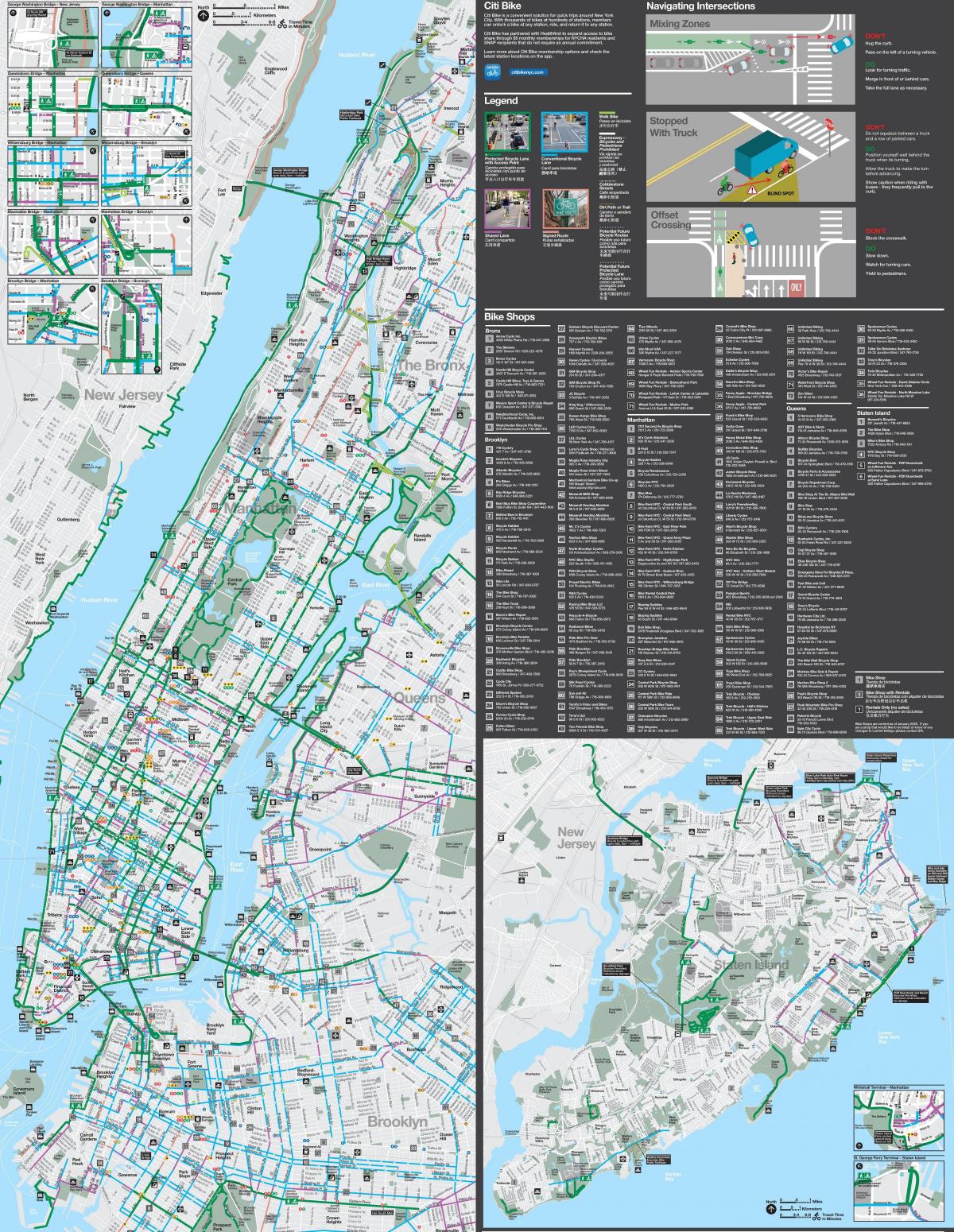
New York City, a metropolis known for its bustling streets and iconic skyline, is also undergoing a transformation in its approach to transportation. Cycling, once a niche activity, is steadily gaining popularity as a viable, sustainable, and enjoyable mode of travel. This shift is fueled in part by the city’s commitment to expanding its network of bike lanes, offering cyclists a safer and more efficient way to navigate the urban landscape. The NYC Bike Lane Map, a comprehensive resource, serves as a vital tool for cyclists, providing an overview of the city’s growing cycling infrastructure.
Understanding the NYC Bike Lane Map
The NYC Bike Lane Map, accessible online and through mobile applications, provides a detailed visualization of the city’s bike infrastructure. It encompasses a range of cycling facilities, including:
- Protected Bike Lanes: These lanes are physically separated from vehicular traffic by barriers like concrete curbs, planters, or bollards, offering cyclists a higher level of safety.
- Buffered Bike Lanes: These lanes are separated from vehicular traffic by a painted buffer, providing a visual and physical distinction.
- Bike Paths: Designated paths, often located in parks or along waterways, offer dedicated space for cyclists.
- Shared Lanes: These lanes are marked with a "bike lane" symbol and are shared with vehicular traffic, requiring cyclists to exercise caution.
- Bike Routes: These routes are designated on maps and signs, often following existing streets, and may not have dedicated bike lanes but offer guidance for cyclists.
The map’s color-coding system provides clear distinction between different types of facilities, allowing cyclists to readily identify the level of protection offered. For instance, protected bike lanes are typically depicted in green, while shared lanes are often marked in yellow.
Benefits of Utilizing the NYC Bike Lane Map
The NYC Bike Lane Map offers numerous benefits for cyclists:
- Enhanced Safety: By identifying dedicated bike lanes, cyclists can avoid sharing roadways with high-speed vehicular traffic, significantly reducing the risk of accidents.
- Increased Efficiency: Navigating through dedicated bike lanes allows for faster and more efficient travel, avoiding the delays associated with navigating congested roadways.
- Improved Navigation: The map provides a clear and concise overview of the city’s bike infrastructure, allowing cyclists to plan their routes and identify the safest and most efficient paths.
- Environmental Sustainability: By choosing cycling as a mode of transportation, cyclists contribute to reducing carbon emissions and promoting a greener city.
- Improved Health and Well-being: Cycling offers a form of exercise, promoting physical and mental well-being.
Utilizing the NYC Bike Lane Map: Tips and Strategies
While the NYC Bike Lane Map provides a valuable resource, cyclists should adopt certain strategies to ensure a safe and enjoyable cycling experience:
- Familiarize Yourself with the Map: Before embarking on a journey, take time to familiarize yourself with the map, understanding the different types of bike infrastructure and their associated safety levels.
- Plan Your Route: Utilize the map to plan your route, considering your destination, the time of day, and potential traffic congestion.
- Be Aware of Your Surroundings: While cycling, always be aware of your surroundings, paying attention to vehicular traffic, pedestrians, and potential hazards.
- Follow Traffic Laws: Cyclists are required to obey all traffic laws, including stopping at red lights and stop signs, and using hand signals for turning.
- Wear Appropriate Gear: Always wear a helmet, bright clothing for visibility, and consider using lights during low-light conditions.
- Maintain Your Bicycle: Ensure your bicycle is in good working order, with properly adjusted brakes, tires, and lights.
FAQs Regarding the NYC Bike Lane Map
Q: How can I access the NYC Bike Lane Map?
A: The NYC Bike Lane Map is readily accessible online through the NYC Department of Transportation website and various mobile applications.
Q: Are there any specific routes that are recommended for beginner cyclists?
A: Many resources, including online articles and cycling communities, provide recommendations for beginner-friendly routes. These routes often prioritize protected bike lanes and avoid areas with heavy traffic.
Q: What should I do if I encounter an obstacle or obstruction in a bike lane?
A: If you encounter an obstacle or obstruction in a bike lane, exercise caution and consider alternative routes. Report the issue to the NYC Department of Transportation for prompt resolution.
Q: How can I contribute to the expansion of bike lanes in NYC?
A: Engaging with local elected officials, advocating for bike infrastructure improvements, and participating in community cycling initiatives can contribute to expanding the city’s bike network.
Conclusion
The NYC Bike Lane Map serves as a valuable tool for navigating the city on two wheels, offering a comprehensive overview of the city’s growing cycling infrastructure. By understanding the map’s features, benefits, and utilizing the provided tips and strategies, cyclists can enhance their safety, efficiency, and overall enjoyment of cycling in New York City. As the city continues to prioritize its bike infrastructure, the NYC Bike Lane Map will play an increasingly crucial role in fostering a more sustainable, accessible, and enjoyable urban environment for cyclists and pedestrians alike.
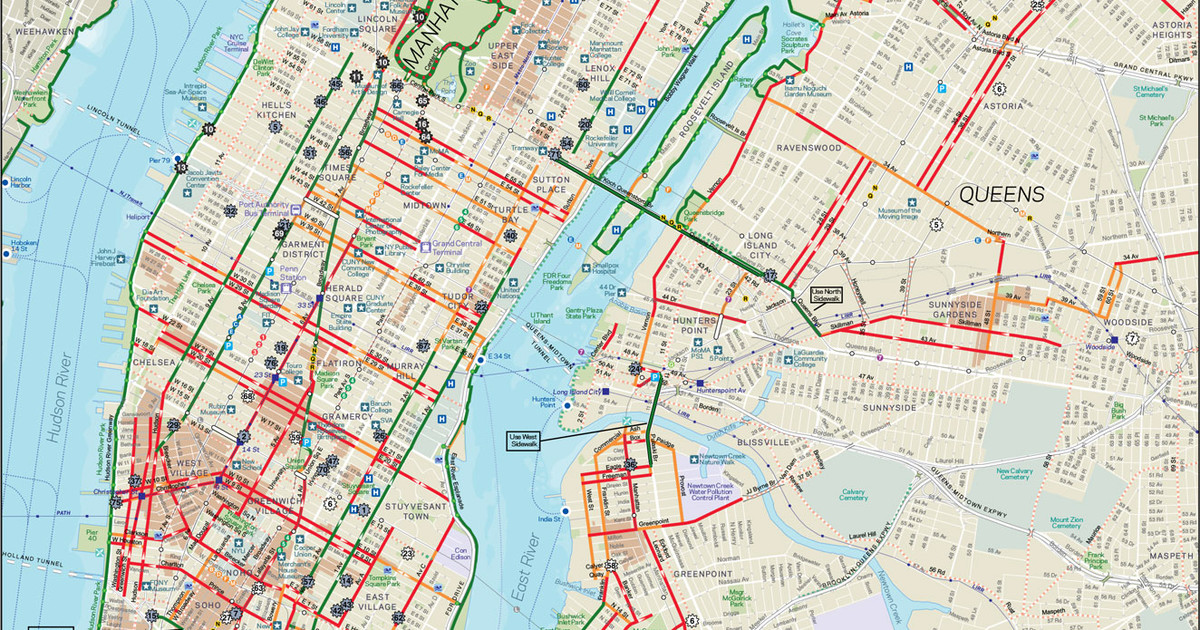

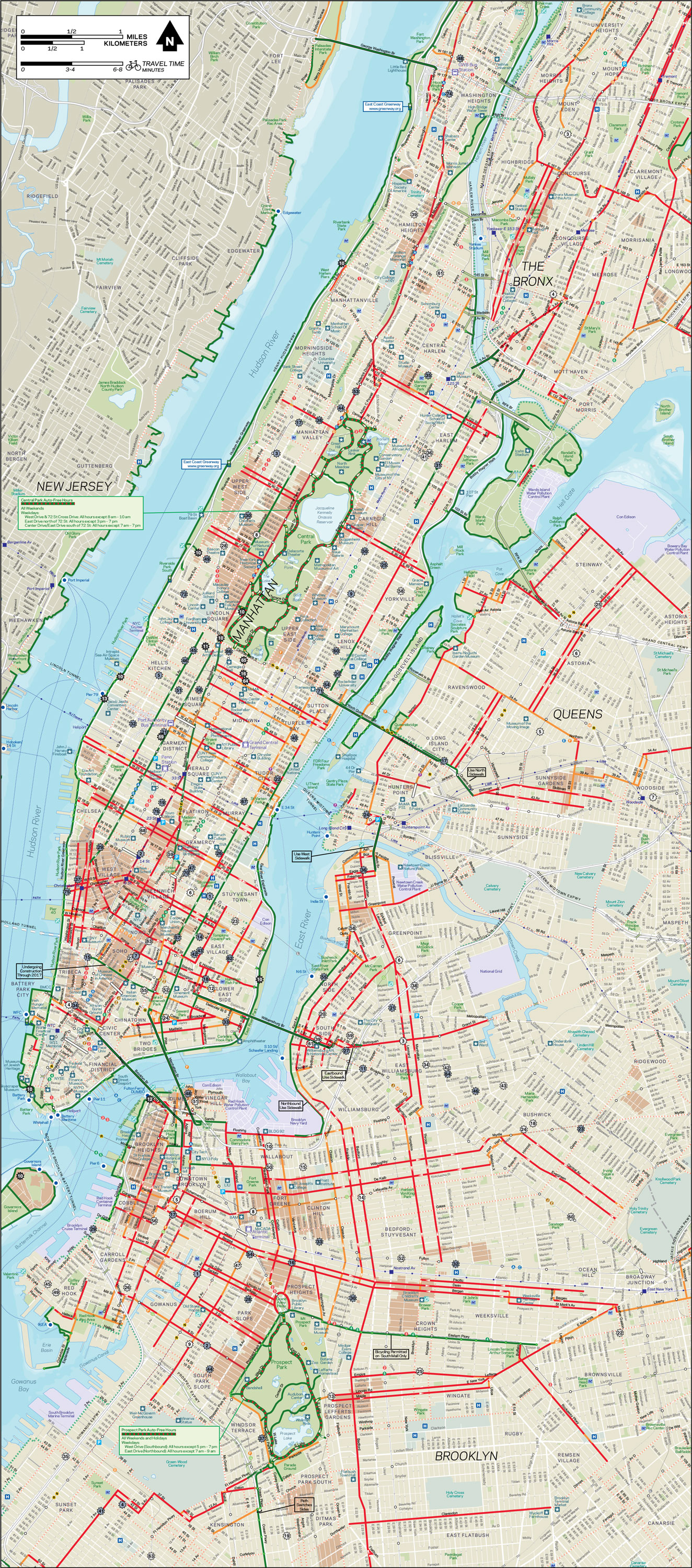
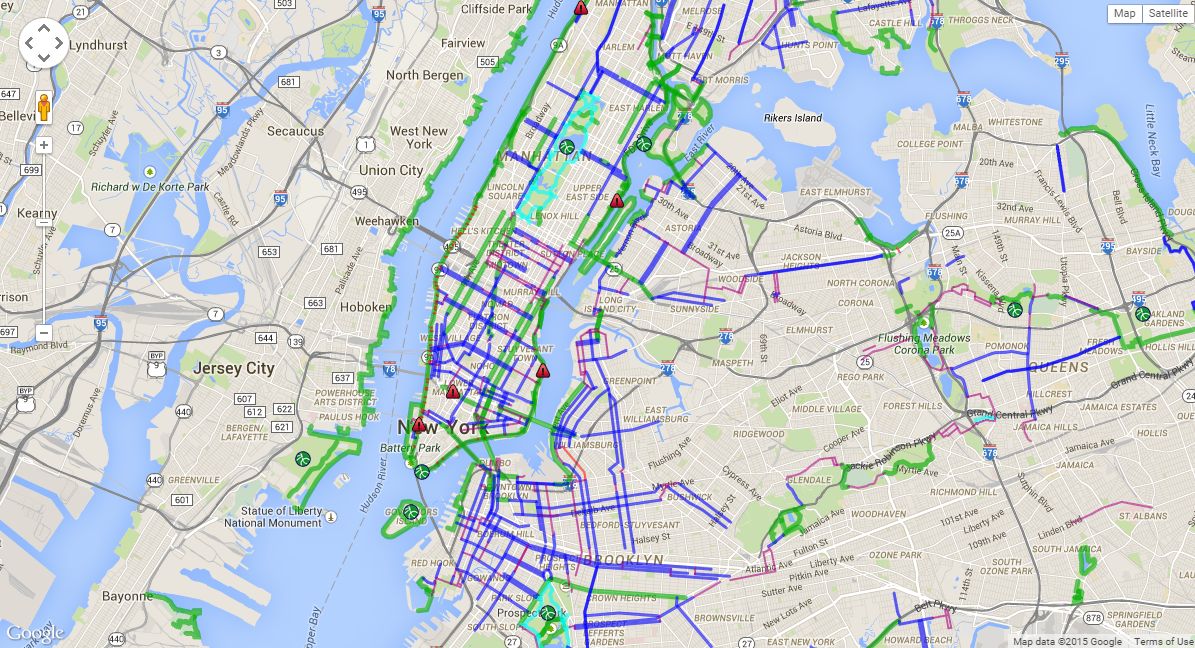
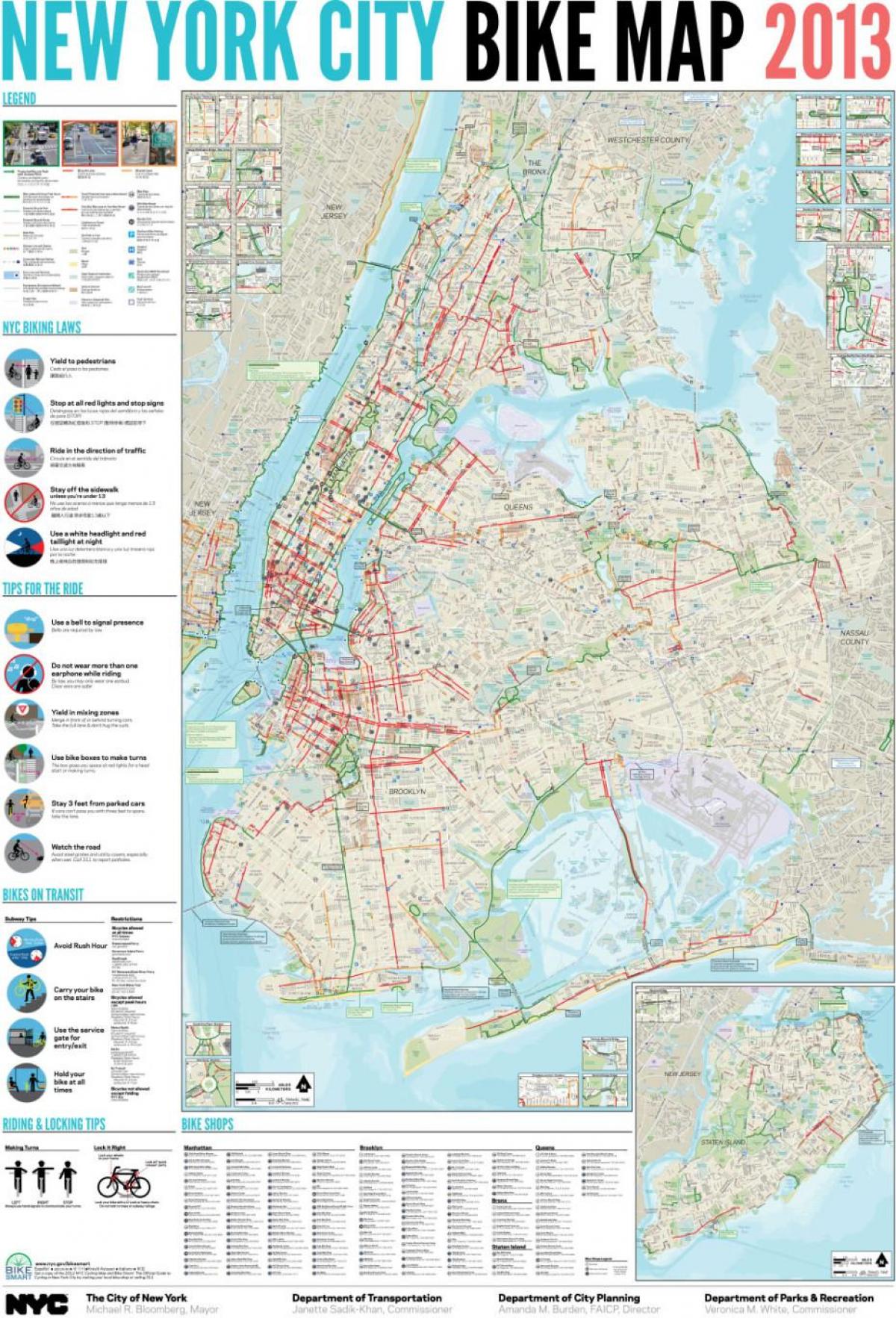
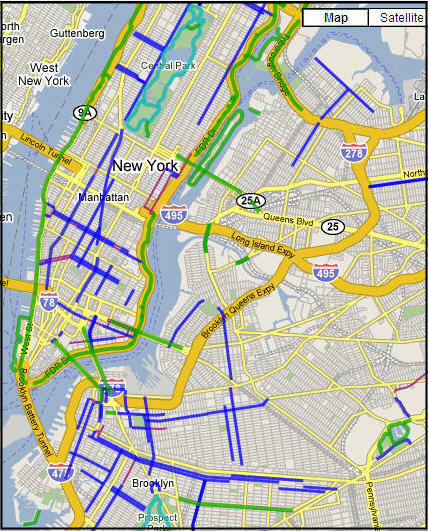


Closure
Thus, we hope this article has provided valuable insights into Navigating the City on Two Wheels: A Guide to the NYC Bike Lane Map. We thank you for taking the time to read this article. See you in our next article!